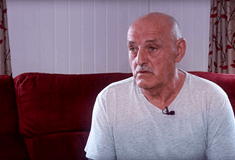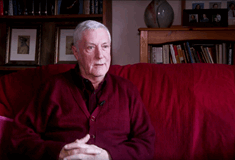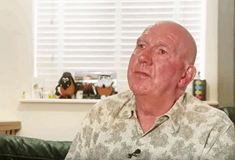New revelations which have emerged during the public inquiry into undercover policing ‘spycops’ has led Unite, the UK’s largest union, to renew its calls for a separate and full public inquiry into the blacklisting scandal.
The ‘spycops’ public inquiry is investigating how members of the Special Demonstration Squad (SDS) infiltrated left-wing groups. In many cases, the police officers engaged in intimate sexual relationships with unsuspecting women members of the organisations they targeted.
As part of the disclosure process, it has been revealed that the officer with the code number HN336, who was undercover between 1969-1972 and who infiltrated the International Marxist group and the Vietnam Solidarity Campaign under the cover name ‘Dick Epps,’ went on to work in the Metropolitan Police Industrial Intelligence Section.
This is a further link to the blacklisting scandal as information on the files of some of the workers blacklisted by the Consulting Association can only have been supplied by the police or the security forces.
As well as left-wing groups, members of the SDS also infiltrated trade unions. In 2015, construction union, Ucatt (now a part of Unite), revealed how SDS officer Mark Jenner infiltrated the union under the cover name ‘Mark Cassidy’ (despite this Jenner’s identity continues to be officially protected).
As a result of these findings Unite has core participant status in the public inquiry.
Subsequently, whistleblower Peter Francis a former member of the SDS revealed that the SDS had infiltrated and spied on members of many unions. He apologised for having spied on trade unionists in the construction industry and members of the National Union of Teachers (NUT), Communication Workers Union (CWU), Unison, Fire Brigades Union (FBU) and the National Union of Students (NUS).
Unite assistant general secretary, Gail Cartmail, said: “Once again we have unearthed more links between the police and those involved in blacklisting.
“It’s clear there was direct collusion between the police and the blacklisters who ruined workers’ lives, but it is going to be impossible to find out the full extent of that collusion and who knew about it until there is a full public inquiry into blacklisting.
“In the meantime it is essential that there is maximum transparency in the public inquiry into undercover policing. It would be simply intolerable if SDS officers are allowed to remain in the shadows and escape having to answer for their actions.”
The next hearing in the public inquiry into undercover policing will be on Wednesday 21 March at the Royal Court of Justice, where there will be applications by the Metropolitan Police to maintain the anonymity of many of the officers involved.









